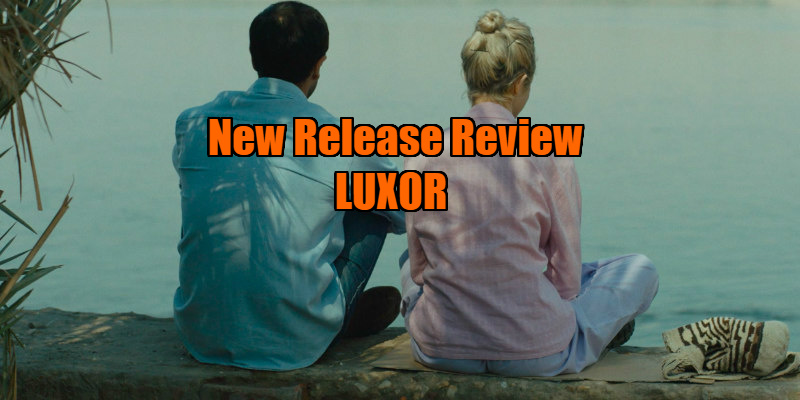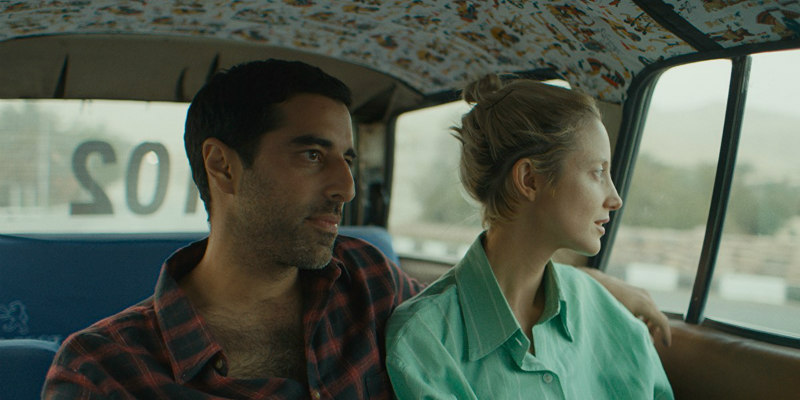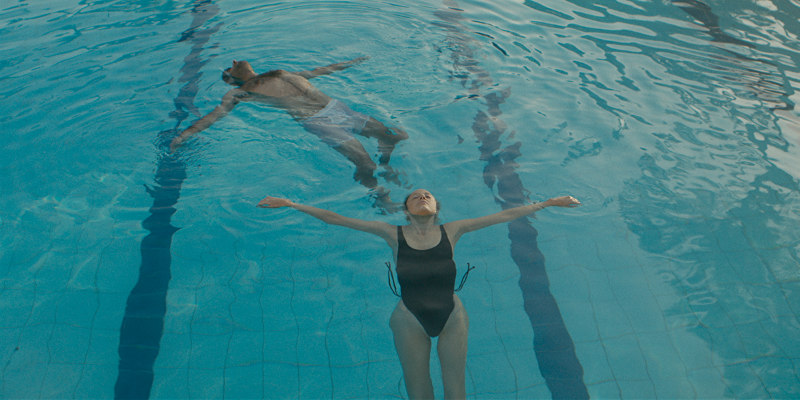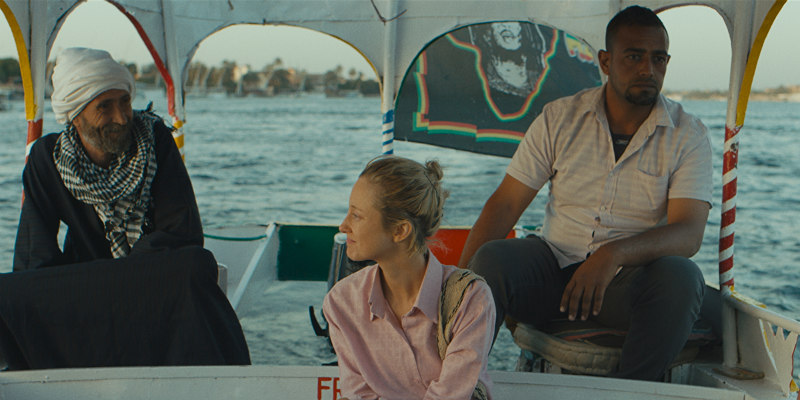
Review by
Benjamin Poole
Directed by: Zeina Durra
Starring: Andrea Riseborough, Karim Saleh, Shereen Reda, Michael Landes, Salima
Ikram

Anyone fancy a cheeky getaway to Luxor, the city on the east bank of the
Nile River in southern Egypt which surrounds two huge, surviving ancient
monuments: Luxor Temple and Karnak Temple, a mile north? (information via
Google). Could be just the ticket as the nights draw in and this weather
carries on... Don’t forget to pack your sunscreen, cool linens and heavy
emotional baggage though!
In the film Luxor, directed and written by Zeina Durra, we centre on Hana, played
by Andrea Riseborough (in all her irreproachable Andrea
Riseboroughness), who is spending time in said city.

Although there are
elements of a travelogue to Luxor, the open glory and historical beauty narratively juxtaposes Hana’s
pensive, pinched manner. It transpires that Hana is a trained doctor and a
former aid worker. She is staying in Luxor in an attempt to decamp from
her past, where she witnessed some unnamed but surely atrocious incidents.
However, the thing about the past is that, seeing as the future is
anyone’s guess and the present never sticks around long enough, is that it
is pretty hard to shake. The city of Luxor, with its rich and visible
histories, becomes a metaphor for the inescapability of Hana’s former
life.
Not helping the whole escaping bad memories bid is the appearance of
gorgeous Sultan, Hana’s ex (played by Karim Saleh, who reminded me
of the lovable stand up/filmmaker Brett Goldstein). This beguiling
revenant bumps into Hana during a boat trip upon the Nile, giving further
emotional weight to Durra’s meditations upon the persistence of time gone.
Sultan and Hana had a thing in their twenties, and it is pretty clear from
Riseborough’s meticulously subtle emoting that feelings still linger on
both sides (unless she fell in the water at seeing him, of course, in
which case she would be in de... oh, forget it). As the two
tentatively rekindle their relationship they take in the sights of Luxor,
which, mercifully for them, are free of the thronging tourists that
normally swarm upon such places.

Luxor is the sort of film that mills dramatic grist from
this sort of when-will-they-they-will-won’t-they? dynamic, which is, of
course, given significance by Hana’s low-key PTSD. Sultan is a right old
charmer though, mumbling figuratively about the city, that how lovely it
is that something so beautiful is flawed. Oh Sultan, stop!
Hana gloomily quotes Gramsci, and when the two share cigarettes at a bar,
it is framed as a moment of rebellious emancipation (the manner in which
the symbolic relevance of the cigarette has developed and been adapted in
cinema is intriguing: a cigarette, also puffed in Egypt, has similar coded
properties at the end of this month’s
Rebecca). It’s all rather ponderous, but in a pleasing, gentle way. The
chemistry of the leads is amiable and credible, and the film, which makes
the most of its picturesque locations, is nice to look at, too. Durra
never overlabours Hana’s condition, and is wise enough to allow
Riseborough’s performance, with her pristine gangliness and spooked eyes,
to do the heavy lifting.

You’ll leave Luxor with a hankering to visit its sand
blasted temples, its late-night rivers and expansive hotel pools. But
whether you’ll actually want to watch the film itself in the first place
depends upon your mileage with this sort of personal, slow burn
production.
Luxor is on UK/ROI release from
November 6th through virtual screenings, including Curzon Home Cinema, BFI
Player and local cinemas listed on
modernfilms.com.


